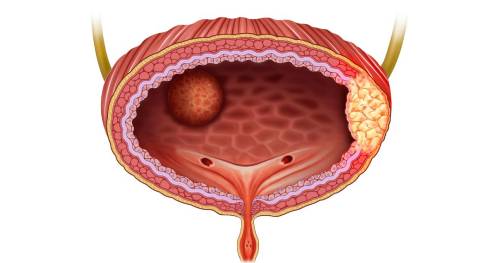Bladder Cancer Causes, Symptoms, and Treatment
Bladder cancer is a type of cancer that begins in the cells of the bladder, the organ that stores urine. It is one of the most common cancers, especially in older adults. Early detection and treatment are crucial for better outcomes. If you notice any symptoms or have concerns about bladder cancer, consult a urologist like Dr. Abdul Rauf for expert diagnosis and care.

What Is Bladder Cancer?
Bladder cancer occurs when abnormal cells in the bladder grow uncontrollably, forming a tumor. The bladder is a hollow organ in the lower abdomen that stores urine before it leaves the body. Most bladder cancers start in the inner lining of the bladder and can spread to other parts of the body if not treated early.
Causes of Bladder Cancer
The exact cause of bladder cancer is not always clear, but several risk factors have been identified:
- Smoking: Smoking is the leading cause of bladder cancer, as harmful chemicals in tobacco enter the bloodstream and are filtered into the urine.
- Chemical Exposure: Working with chemicals used in dyes, rubber, textiles, and paint can increase the risk.
- Age and Gender: Bladder cancer is more common in older adults and men.
- Chronic Bladder Inflammation: Repeated urinary infections or long-term use of catheters can increase the risk.
- Family History: A family history of bladder cancer may raise your risk.
Symptoms of Bladder Cancer
The symptoms of bladder cancer can vary, but the most common signs include:
- Blood in the urine (hematuria): This is the most common symptom, making urine appear pink, red, or brown.
- Frequent urination: Feeling the need to urinate more often than usual.
- Painful urination: A burning sensation or pain during urination.
- Lower back pain: Pain in the lower back or pelvic area.
- Urgency to urinate: Feeling a strong need to urinate even when the bladder is not full.
If you experience any of these symptoms, it’s important to seek medical attention immediately.
Diagnosis of Bladder Cancer
To diagnose bladder cancer, Dr. Abdul Rauf may perform the following tests:
- Urine Tests: Checking for blood, cancer cells, or other abnormalities in the urine.
- Cystoscopy: Using a thin tube with a camera to examine the inside of the bladder.
- Imaging Tests: Using CT scans, MRIs, or ultrasounds to detect tumors and determine their size and location.
- Biopsy: Removing a small sample of tissue from the bladder for laboratory testing.
Treatment Options for Bladder Cancer
The treatment for bladder cancer depends on the stage of the cancer, the size of the tumor, and the patient’s overall health. Common treatment options include:
- Surgery:
- Transurethral Resection (TURBT):Removing the tumor through the urethra.
- Cystectomy:Removing part or all of the bladder in advanced cases.
- Immunotherapy:
- Using the body’s immune system to fight cancer cells.
- Chemotherapy:
- Using drugs to kill cancer cells, often before or after surgery.
- Radiation Therapy:
- Using high-energy beams to destroy cancer cells.
- Targeted Therapy:
- Using drugs to target specific cancer cells without harming normal cells.
Preventing Bladder Cancer
While not all cases of bladder cancer can be prevented, you can reduce your risk by:
- Quitting Smoking: Smoking is the most significant risk factor for bladder cancer.
- Avoiding Chemical Exposure: Use protective gear if you work with harmful chemicals.
- Drinking Plenty of Water: Staying hydrated helps flush toxins from the bladder.
- Eating a Healthy Diet: Include fruits, vegetables, and whole grains in your diet.
- Regular Check-ups: Visit a urologist regularly, especially if you have risk factors.
Why Choose Dr. Abdul Rauf for Bladder Cancer Treatment?
Dr. Abdul Rauf is a highly skilled urologist with extensive experience in diagnosing and treating bladder cancer. He uses the latest technology and personalized treatment plans to provide the best possible care. Whether you need early diagnosis, surgery, or follow-up care, Dr. Abdul Rauf is here to help.
📧 Email: info@drabdulrauf.com
🌐 Website: www.drabdulrauf.com
📍 Address: IMC Hospital DHA Lahore
📞 Phone: 0336 8609825
Don’t ignore the signs of bladder cancer. Contact Dr. Abdul Rauf today for expert care and effective treatment options.
